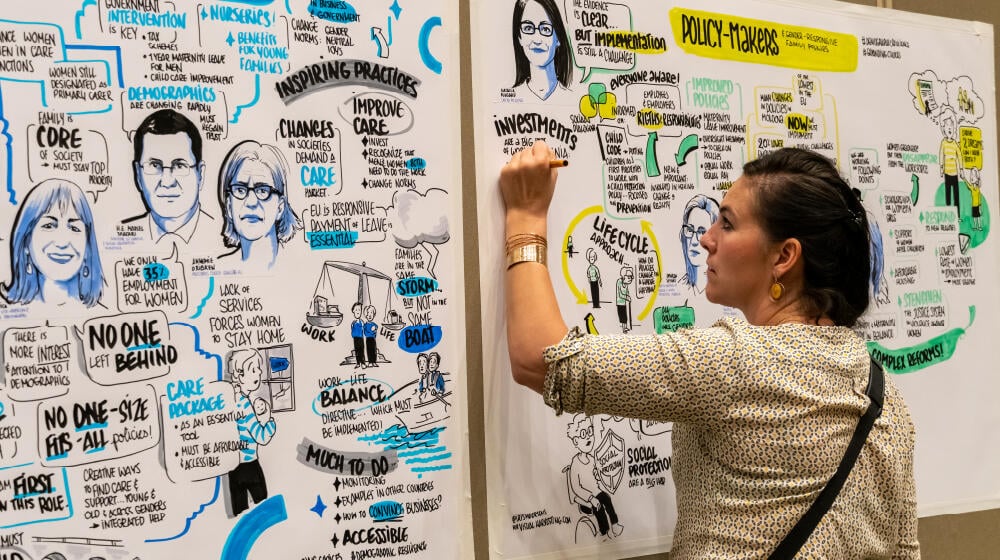Family policies let businesses benefit from greater staff morale and lower levels of absenteeism, turnover, and recruitment costs, all of which bring greater productivity and revenue. More importantly, it provides equality in more opportunities for both women and men in their careers. UNFPA Eastern Europe and Central Asia Regional Office (UNFPA EECARO) based in Istanbul organized a high-level conference regarding family-friendly policies on September 22, 2022. The event brought together policymakers, the private sector and experts to discuss gender-responsive family policies in Eastern Europe and Central Asia.
ISTANBUL, 22 September 2022 – Across Europe, women are still widely expected to shoulder much of the unpaid care and household work. This makes it hard for women to be employed and have a family. They often still, in effect, have to choose between pursuing a career and having children. Some women never enter the workforce or drop out when they have children. Those who do enter and remain in the workforce often find it difficult to start a family, if they want one, and in many cases end up with fewer children than they would have wanted, or none at all. Family policies have the power to go to the center of this gender inequality that still holds back progress for societies struggling with demographic change.
The conference on family policies was hosted by the UNFPA EECARO in Istanbul was held under UNFPA’s Expanding Choices programme, funded by the Austrian Development Agency (ADA). Exploring the linkages between gender-responsive family policies, unpaid care work, gender equality, and demographic resilience, over 100 government and business leaders from across Eastern Europe and Central Asia participated in the conference.
The importance of well-designed family policies on demographic challenges that Europe is facing was emphasized during the opening speeches. “It’s time to tear down the barriers that prevent women and men to have the careers, and the number of children, they want,” said Florence Bauer, Director of UNFPA’s Regional Office for Eastern Europe and Central Asia.
“Family policies make it easier for women and men to fulfil their responsibilities both at home and at work. They are beneficial for working parents, companies, the economy, and society as a whole.”
“Our cooperation with UNFPA to support women, girls and vulnerable groups grows day by day. It is our common responsibility to ensure that everyone benefits from social assistance equally," said Rıdvan Duran, Deputy Minister of the Family and Social Services Ministry.
“Families form the core of our society. It is through families that we live full and prosperous lives. Therefore, it is crucial to keep families at the center of our policymaking,” said Dubravka Suica, Vice President of the European Commission for Demography and Democracy. “If we're serious about supporting families, it is essential that we create an environment in which all kinds of families can thrive, no matter their composition."
The conference held three different panels on;
- Panel discussion on family policies for expanding choices and demographic resilience
- Policy-makers and gender-responsive family policies
- The business case for family-friendly workplaces
Both governments and the private sector have a role to play in instituting family policies. These include well-paid parental leave for women and men, care allowances, and anti-discrimination legislation protecting pregnant women, as well as flextime work arrangements for employees, dedicated spaces at the workplace for lactating mothers, and care facilities for small children.
Live stream of the first part of the event


